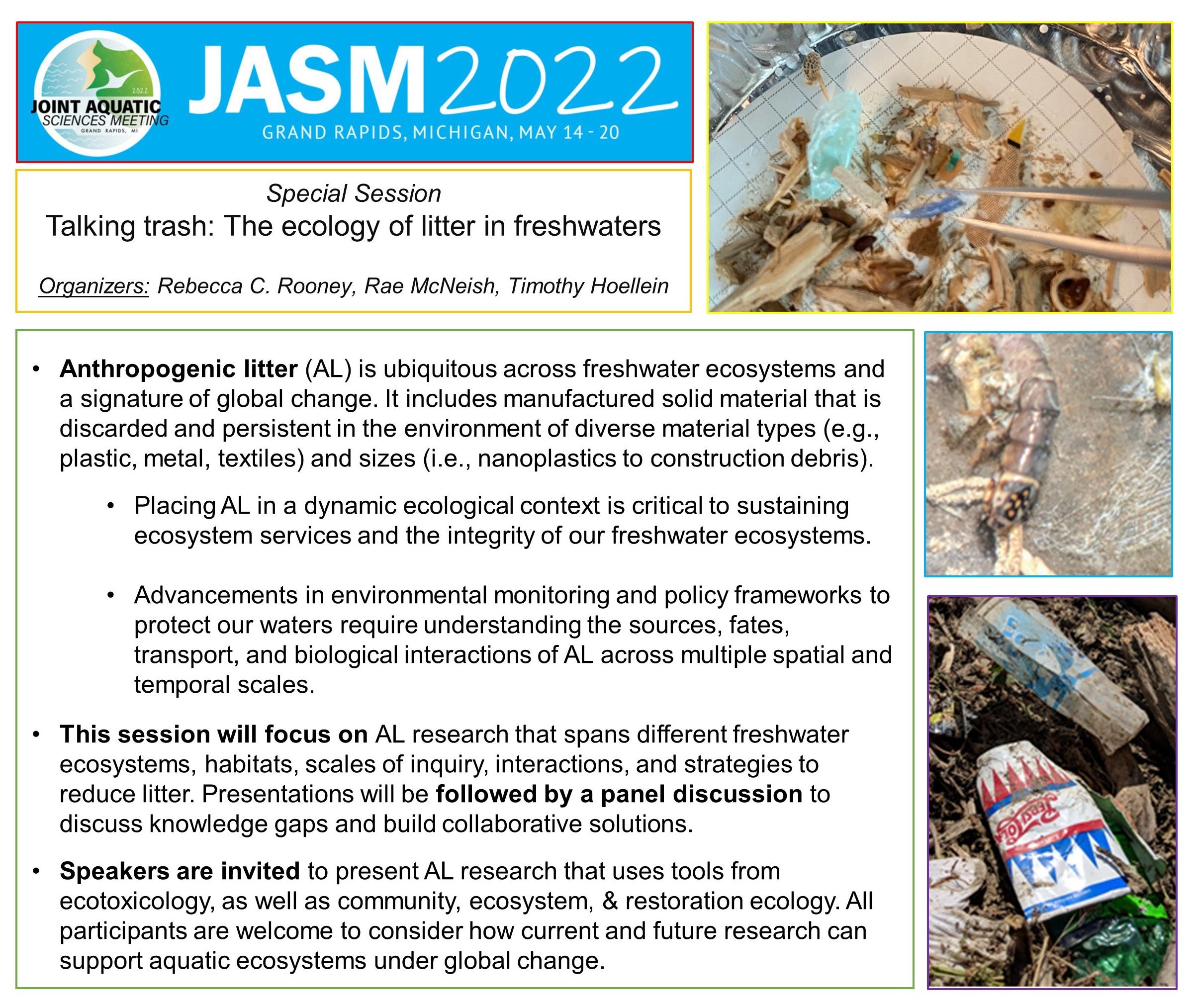After a long absence from in person conferences due to the COVID-19 pandemic, organizers are pleased to announce that the Joint Aquatic Sciences Meeting (JASM 2022) will take place May 14-20 as a hybrid (in person + virtual) conference in Grand Rapids, Michigan.
Organized by the Consortium of Aquatic Science Societies, the JASM 2022 will comprise the annual conference for the 9 largest aquatic sciences societies in North America, including the American Fisheries Society, the Association for the Sciences of Limnology and Oceanography, the Coastal and Estuarine Research Federation, the Freshwater Mollusk Conservation Society, the International Association for Great Lakes Research, the North American Lake Management Society, the Phycological Society of America, the Society for Freshwater Science, and the Society of Wetland Scientists.
Water Institute member Rebecca Rooney, professor from the Department of Biology, along with colleagues Tim Hoellein and Rae McNeish, are organizing a special session for JASM 2022, and invite fellow researchers to join. The session will focus on anthropogenic litter and is entitled “Talking trash: The ecology of litter in freshwaters”.
Details on the Talking Trash Special Session:
Anthropogenic litter (AL) or manufactured solid material that is discarded and persistent in the environment, includes a diversity of material types (e.g., plastic, metal, textiles) and sizes (i.e., nanoplastics to construction debris). AL is ubiquitous across freshwater ecosystems, and a signature of global change.
Monitoring the accumulation of AL in the environment has been ongoing for decades, but advancements in the field require placing AL in a dynamic ecological context. Understanding the sources, fates, and biological interactions of AL across multiple spatial and temporal scales is critical to sustaining ecosystem services and the integrity of our freshwater ecosystems.
Integrative ecological approaches that consider fate, transport, and multiple interactions will generate results that bridge the knowledge gaps necessary to implement management and policy frameworks to protect our waters.
This session will focus on AL research that spans different freshwater ecosystems, habitats, scales of inquiry, interactions, and strategies to reduce litter. All participants are welcome to consider how current and future research can support aquatic ecosystems under global change.
Speakers are invited to present work that connects studies in ecotoxicology with analyses using community, ecosystem, & restoration ecology tools. Presentations will be followed by a panel discussion to discuss knowledge gaps and build collaborative solutions.
“Our freshwater ecosystems are under tremendous pressure from multiple stressors. Anthropogenic litter is a key threat that is gaining recognition as the insidious effects of microplastics and nanoparticles on aquatic biota come to light. To manage this threat, we need a diverse group of people at the table, with expertise in environmental policy, ecological restoration, toxicology, economics, clean technology all working together to mitigate the damage from anthropogenic litter of all sizes.” said professor Rooney.
Researchers and their HQP are invited tosubmit abstracts to JASM 2022 to present in the session. The abstract submission deadline is January 10th.
More information and abstract submission guidelines are available here.
